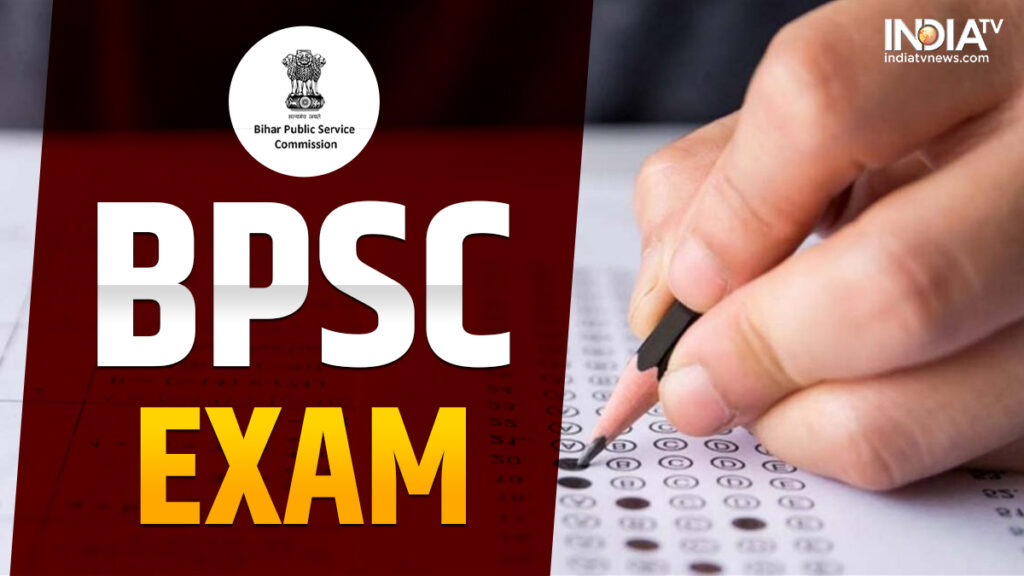Bihar BPSC 70th Pre Exam Recruitment 2024: Apply Now for Exciting Opportunities
Bihar BPSC 70th Pre Exam Recruitment 2024: Apply Now for Exciting Opportunities Introduction to Bihar BPSC 70th Pre Exam Recruitment 2024 The Bihar Public Service Commission (BPSC) has announced the 70th Pre Exam Recruitment 2024, creating a wave of excitement among job seekers in Bihar. With a total of 1,957 vacancies, this recruitment offers an excellent opportunity for aspiring candidates to secure prestigious government positions. As competition intensifies, understanding the application process, eligibility criteria, and preparation strategies becomes crucial. This blog aims to provide comprehensive information about the Bihar BPSC 70th Pre Exam Recruitment 2024, helping candidates navigate their journey toward success. Overview of Bihar Public Service Commission (BPSC) Established in 1949, the Bihar Public Service Commission (BPSC) is a constitutional body responsible for conducting various examinations for recruitment to the civil services and other administrative positions in the state of Bihar. The commission’s primary objective is to ensure a fair and transparent selection process while adhering to the principles of meritocracy. The BPSC conducts examinations to fill vacancies in various government departments, making it a pivotal institution for job seekers in the state. Key Dates for Bihar BPSC 70th Pre Exam Recruitment Knowing the important dates is crucial for applicants to ensure timely submissions and preparations. The following table summarizes the key dates related to the Bihar BPSC 70th Pre Exam Recruitment 2024: Event Date Notification Release Date October 2024 Application Start Date October 2024 Application End Date November 2024 Admit Card Release Date December 2024 Exam Date January 2025 Eligibility Criteria for Candidates Before applying, candidates must ensure they meet the eligibility criteria set by the BPSC. The following details outline the essential qualifications and requirements: Age Limit as on 01/08/2024 Minimum Age: 21 years Maximum Age: General (Male): 37 years General (Female): 40 years OBC / EBC: 40 years SC / ST: 42 years BPSC 70th Exam Eligibility Candidates must hold a bachelor’s degree from a recognized university or institution. The detailed eligibility criteria can vary based on the specific post applied for, and applicants are encouraged to refer to the official notification for more information. How to Apply for Bihar BPSC 70th Pre Exam Applying for the BPSC 70th Pre Exam is a straightforward process. Candidates can follow these steps: Visit the official BPSC website: BPSC Official Website. Click on the “Apply Online” link for the 70th Pre Exam. Register by providing the necessary details. Fill out the application form with accurate information. Upload the required documents. Pay the application fee. Submit the application form and print a copy for future reference. Application Fees and Payment Details Understanding the application fee structure is essential for candidates. The following table summarizes the application fees for the BPSC 70th Pre Exam: Category Application Fee General (UR) ₹600 EWS ₹600 OBC / EBC ₹600 SC / ST ₹150 Female Candidates ₹150 Payment can be made through online methods using credit/debit cards or net banking. Exam Pattern and Syllabus Overview The BPSC 70th Pre Exam will consist of multiple-choice questions (MCQs) designed to assess candidates’ general knowledge and aptitude. The exam will cover a variety of subjects, including: General Studies Current Events Indian History Indian Geography Indian Polity Economics General Science Exam Pattern Total Questions: 150 Total Marks: 150 Duration: 2 hours Negative Marking: 0.25 marks for each wrong answer Preparation Tips for Bihar BPSC 70th Pre Exam To excel in the BPSC 70th Pre Exam, candidates must adopt effective preparation strategies. Here are some tips to enhance your study plan: Understand the Syllabus: Familiarize yourself with the exam syllabus to focus on relevant topics. Create a Study Schedule: Allocate time for each subject and stick to a regular study routine. Practice Previous Year Papers: Solving past question papers will help you understand the exam pattern and identify your strengths and weaknesses. Stay Updated: Regularly follow news and current affairs to stay informed about national and international events. Join Study Groups: Collaborating with peers can provide motivation and facilitate the exchange of knowledge. Recommended Study Materials and Resources Selecting the right study materials is crucial for effective preparation. Here are some recommended resources: Books: “General Studies for Civil Services Preliminary Examination” by McGraw Hill “Indian Polity” by M. Laxmikanth “History of Modern India” by Bipan Chandra Online Platforms: Websites like Institute in Delhi offer comprehensive courses and study materials specifically designed for BPSC aspirants. Mock Tests: Enroll in mock test series to evaluate your preparation level and improve time management skills. Previous Year Question Papers and Analysis Analyzing previous year question papers can provide valuable insights into the types of questions asked in the BPSC exams. Candidates are encouraged to review these papers to familiarize themselves with the exam format and difficulty level. By understanding the trends and recurring topics, candidates can tailor their preparation accordingly. Important Notifications from BPSC Staying updated with the latest notifications from BPSC is essential for applicants. Candidates should regularly check the official BPSC website for any announcements regarding exam dates, syllabus changes, or other important information. Selection Process for Bihar BPSC 70th Recruitment The selection process for the BPSC 70th Pre Exam comprises the following stages: Preliminary Exam: A qualifying exam that tests general knowledge and aptitude. Main Exam: Candidates who clear the preliminary exam will be eligible for the main exam, which consists of descriptive-type questions. Interview: The final stage involves a personal interview to assess candidates’ suitability for the position. Frequently Asked Questions (FAQs) 1. What is the total number of vacancies in the BPSC 70th Pre Exam Recruitment 2024? The total number of vacancies is 1,957. 2. What is the age limit for applying for the BPSC 70th Pre Exam? The minimum age is 21 years, and the maximum age varies based on the category, ranging from 37 to 42 years. 3. How can I apply for the BPSC 70th Pre Exam? Candidates can apply through the official BPSC website BPSC Official Website. 4. Is there negative marking in the BPSC 70th Pre Exam? Yes, there is a negative marking











